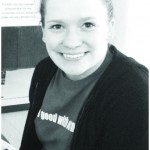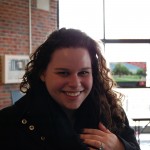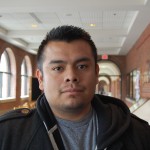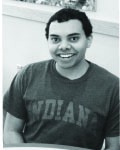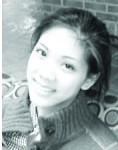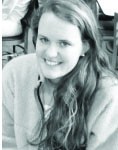By Spenser Hickey
Assistant Copy Editor
This editorial contains references to slurs used against minority communities.
I had my first brush with the issue of on-campus racism last year, writing a story on a rally over the death of Florida teen Trayvon Martin, shot by self-appointed neighborhood watchman George Zimmerman, whose trial has yet to officially begin and has unsurprisingly slipped out of the public eye.
Interviewing members of the Student Union on Black Awareness, I brought up the question of racial profiling in their lives; they mentioned some instances back home and Chaplain Powers mentioned the issue of “shopping while Black” in downtown Delaware. I followed up on this with a story on Anti-Hate Week shortly after, but then summer rolled around, and when I came back I had forgotten that prejudice – either on the basis of race, sex, or sexual orientation – still existed here.
A few weeks ago, I signed up to cover events honoring Dr. Martin Luther King. I’m ashamed to say that I picked the story because I thought it would be a good addition to my writing portfolio when I applied for a job. While I was talking to some audience members from the Delaware community, Chaplain Powers told them I was “a true believer” in the movement for racial equality; I sheepishly said that I was just a reporter.
Looking back, I was unworthy of Chaplain’s praise. Sure, I believed in racial equality – most people do – but what had I done about it? Nothing, and that’s what counts. Maybe now, having focused my reporting on the issue of race and minority issues in general, I’ve earned the term.
Many members of the majority community go through their time here unaware that prejudice continues; I wouldn’t blame them for it that much. But as a journalist, it was my job to know, and to show it to the community through my writing.
As journalists, one of our core responsibilities is to “give (a) voice to the voiceless.” As a BMF member pointed out, the minority communities on our campus, through no fault of their own, lack a voice that can reach the rest of the community; all they can do is vent to each other about shared experiences. As the campus’s reporters, it’s supposed to be our job to record their stories of discrimination and harassment. It’s news of the most real and raw kind, a rarity on a college campus, and we – myself especially – missed it.
I’d like to think that my stories have demonstrated adequately what minority communities experience, but I know this isn’t the case – I’ve only been able to talk to a small fraction of the minority community here, namely members of activist groups such as SUBA, SU, BMF, VIVA, Hillel, Tauheed and PRIDE, and residents of the Women’s House and the House of Black Culture.
To anyone I have not interviewed but who has a story to tell, please contact me: my email is schickey@owu.edu.
Going back to the interviews I did following the Martin Luther King events, when Professor Twesigye described being welcomed to campus with a swastika and Chaplain Powers said the campus woke up to a burned cross in front of University Hall his first year, I was stunned.
As a straight white man, I’ve never known the fury or humiliation that being called a nigger, bitch or faggot provokes. The English language doesn’t even have comparable words to be used against our majority community – and if that doesn’t show privilege, what does? It’s not something I can come close to comprehending, a fact that helped preserve my objectivity but cheapened my ability to provide context to the story.
While the most overt acts I heard of came from non-students – at least recently – there is still an undercurrent of subtle prejudice and stereotyping that persists among our community, in the past noticed only when it bubbles over into violent or destructive incidents – a bombed house or a burned cross here, a fist fight there, and then ignored once more.
As a campus, we pride ourselves on our diversity, but how much time do we give to the concerns of minority students? Not enough, in my view.
We mention Branch Rickey, class of 1903, as one of our most treasured alums, while neglecting to mention that 1903 was also the first year a Black student graduated from the university.
We claim that his time here, particularly seeing a fellow ballplayer denied housing at the hotel he stayed at, inspired his integrating baseball. We forget that it wasn’t until two years after Jackie Robinson joined the Major Leagues that OWU ended segregated housing and allowed Black students to live in dorms rather than Selby Stadium or off-campus. We may be proud of Branch Rickey now, but I doubt he was very proud of us in 1947.
The recent hate incidents at Oberlin, which were only noticed after a man in Klan robes was spotted outside the Afrikan Heritage House there, showed what racism unacknowledged can boil over into. Before this came a month of racist, homophobic and anti-Semitic graffiti and throughout the year similar messages were posted on an anonymous online forum for Oberlin students.
But as I write this editorial, and review the story it accompanies, I question whether it will achieve any impact on increasing awareness of prejudice and hate on campus and in Delaware.
This semester, after hearing about the past instances of serious racial intimidation on campus, I’ve written nine stories and this editorial – almost 15,000 words of copy – on issues related, either directly or peripherally, to minority communities’ struggling for equal treatment. The response I’ve gotten from minority communities has been overwhelmingly positive.
But the response of the majority community has been disappointingly minimal. Yes, I am aware that The Transcript has a small readership, and that few read past the front page, but that’s where six of my nine stories have been (including a feature photo).
For once, I’ve had the opportunity and the obligation to go beyond reporting on events and tackle an actual social issue, and yet the majority of students seem to remain oblivious to it.
It’s frustrating, and it’s a frustration shared by many of the campus activists I’ve interviewed in my stories. In my meetings with them, they’ve all said similar things.
“Is racism a problem here?” I ask. “Yes,” they all reply, often as a group.
“Are students and staff aware about it?” I ask. “No,” they reply. “We can only vent to each other; every minority group faces the same issues.”
As a reporter, I must remain objective in my reporting – and this editorial, given its subject matter being the same as the article I wrote. Due to this, I am hesitant to take a position, as a journalist, on whether racism, sexism, or homophobia is wrong – although as an individual, I’d be more than happy to give my view.
I can, however, say that racism, sexism, and homophobia is present in Delaware and at OWU, and provide many incidents of these issues having occurred here.
That’s what I’ve done; that’s what I’ll continue to do.
I can also say that, in my experience, both in my life and in the stories I’ve heard from interviews, it is the majority who are involved in continuing issues such as racism, sexism, and homophobia.
We – the majority – are the problem, if you consider these issues problems.
We may not be shouting slurs from cars or, in the recent case of Oberlin, writing hate graffiti or donning Klan robes, but we can still be part of the issue without even realizing it.
Furthering prejudice can be done in subtle ways, ones I’ve seen and heard in the majority communities at OWU; using anti-minority slurs, even in conversations with only those in a majority community, is one such way.
Yes, I realize that both this editorial and the article I’ve written on pages 1 and 2 use such slurs, and that they are not censored, as was done previously in The Transcript this year.
While it was not my decision to run the slurs in full, I’d like to explain my rationale for sending the story in with them as they are.
These slurs are foul words with a foul history I can barely scratch the surface of understanding. They are as unsettling to look at as they are difficult to stomach writing. It would have been easier for me had I sent my stories in with them printed as “n*****.”
But these slurs were, for the most part, said to me in full, by members of the communities they target, as they were shouted out by those who used them.
Censoring them takes away their foulness, but also allows one to skip over the words without considering the subjugation and history attached.
For those still reading this, I encourage you to continue educating yourself on this ongoing though hidden issue.
Go to a meeting of BMF or SU, come to Take Back the Night this evening, or drop by a PRIDE meeting – I’ve been to all of these and can attest that they welcome everyone, especially members of the majority.
Or, failing that, just go to an event they hold, or research the issues online.
But do something.
